The Oscars night snafu held within itself priceless life lessons. Here's what a global goof-up can teach you about being a better person and a terrific professional
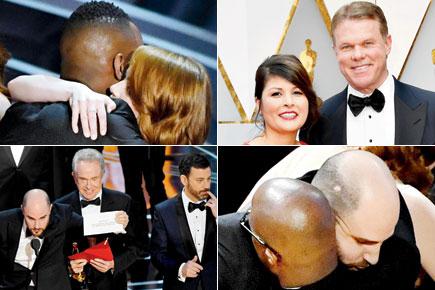
Harish Shetty, Milind Jadhav, Emma Stone, Mahershala Ali, Jordan Horowitz, Jimmy Kimmel, Barry Jenkins, Horowitz, Martha Ruiz, Brian Cullinan
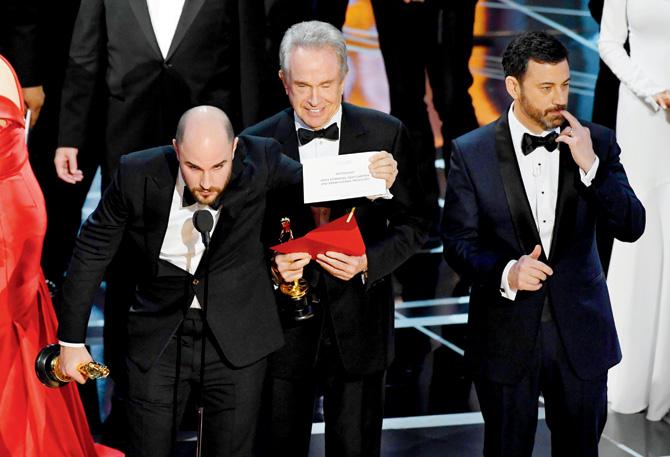
Jordan Horowitz (left) holds up the cue card revealing the real winner; (right) Jimmy Kimmel
ADVERTISEMENT
It was a night that was meant to be memorable. But as chance would have it, the Best Film announcement mix-up is how the 89th edition will go down in the history of the Academy Awards. Those few minutes of commotion and embarrassment, however, couldn't eclipse the good that emerged from the disaster. We rummaged through the bedlam to bring you five positive lessons that came out of one crazy night.
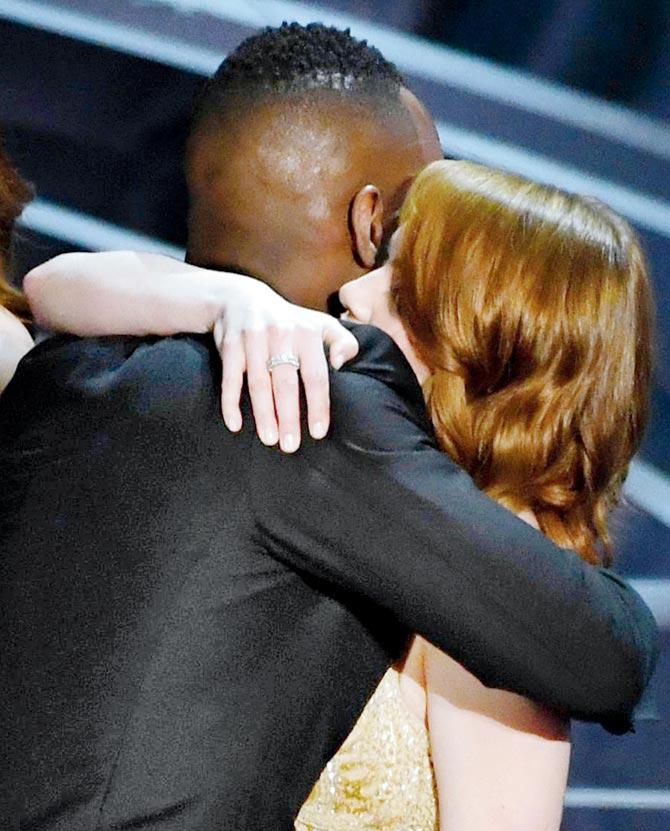
Emma Stone hugs Mahershala Ali after the goof-up is discovered
Humour
Host Jimmy Kimmel was having a dream night, what with his potshots at President Trump, raining candies on the Oscars audience, and bringing in an unsuspecting tourist bus at the ceremony, until things went haywire. His response: using humour to deflect the blunder by reminding the audience, "it's just an awards show", "the good news is we got to see some extra speeches."
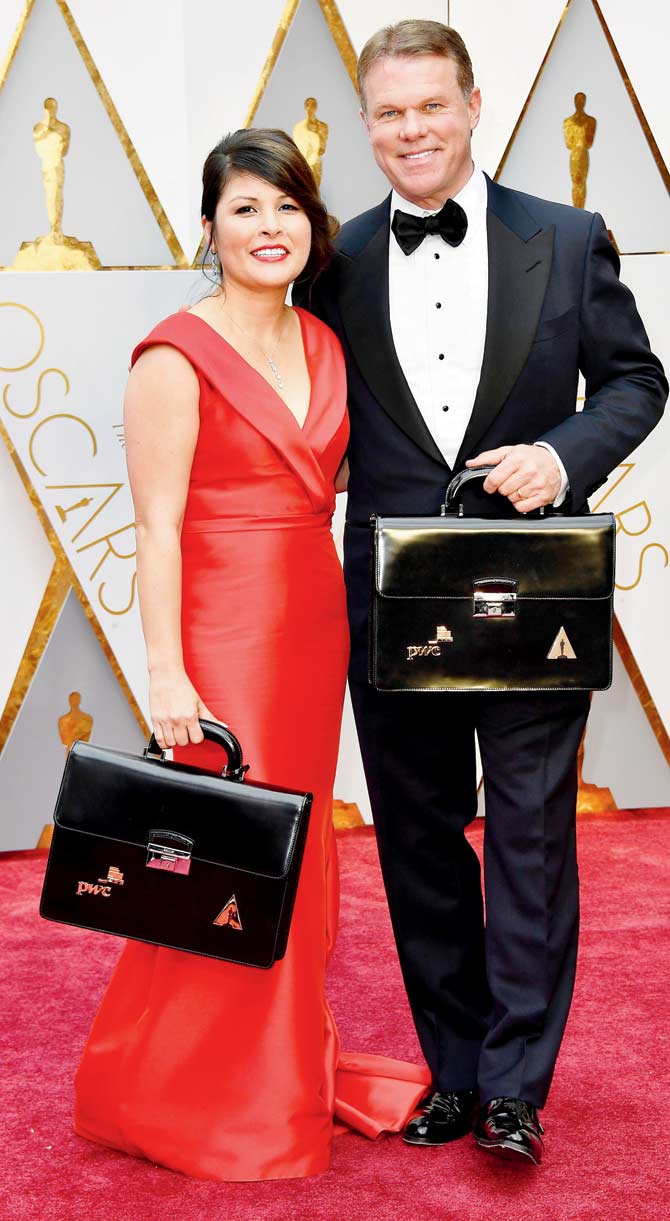
PwC’s Martha Ruiz and Brian Cullinan before the event
Its value at the workplace:
"Humour is a fantastic stress buster," says psychiatrist Dr Harish Shetty, adding, "It also saves you from making another mistake immediately because it eases anxiety." Obviously, the bottom line here is not to laugh at and ridicule others' mistakes. Easy as it may seem, "the ability to laugh at one's own mistakes is a profound act. It comes with the acceptance that being silly is part of being human," says Milind Jadhav, certified life coach.
Consulting psychiatrist and author Dr Dayal Mirchandani draws attention to the fact that humour is part of a presenter's repertoire. "Don't try to be funny if you are not comfortable with it, as it could only make things worse. It is a matter of using your personality effectively," he advises. Dr Shetty recalls how the Windows voice assistant failed Satya Nadella at one of his first presentations after taking over Microsoft. Though he didn't crack a joke about it, he was able to smoothly get on using his charm.
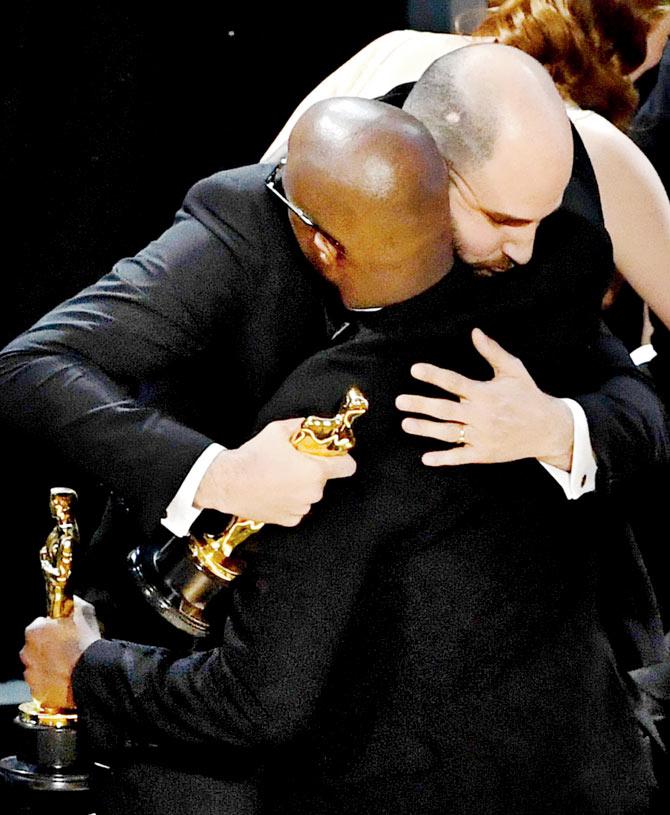
Horowitz hugs Moonlight director Barry Jenkins. Pics/Getty images
Transparency
Being 'robbed' of the Best Picture Oscar brought embarrassment to the La La Land team that was halfway through their acceptance speech, and took away precious moments of unadulterated glory from the Moonlight guys, who had indeed won. Yet, once things became clear, La La Land producer Jordan Horowitz, immediately invited the Moonlight team on stage, holding out the page in front of television cameras, revealing the winner's name.
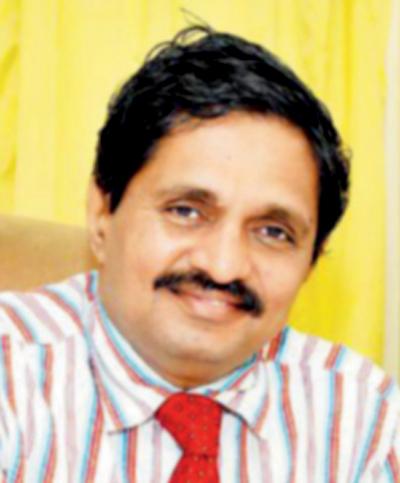
Harish Shetty
Its value at the workplace:
"Shame hinders transparency. The quicker you own up to a mistake, the faster you move on, leaving behind fewer scars," shares Dr Shetty, who suggests that if the office seems like a daunting place to admit one's fault, chatting over tea in a less intimidating environment can help.
Jadhav equates transparency with personal integrity. At work, there may arise a situation where, if you don't come clean, nobody would know it was you who did it. "But this belief in being able to get away with things, would ultimately impact your life, with greater regrets in store," he says, adding, "For a leader handling a team, being transparent lends credence to their authority, which ensures the team's well-being."
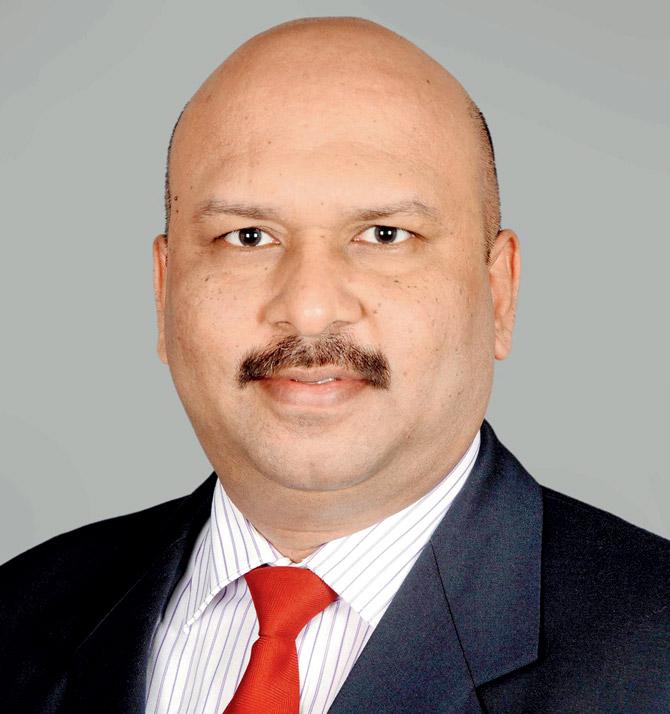
Milind Jadhav
Owning up
Barely a few hours after the mix-up, accounting firm PriceWaterhouse-Coopers that has been handling the counting of votes and winner envelopes at the Oscars, owned up and issued an apology to the award presenters, Warren Beatty and Faye Dunaway, and the teams of both the movies.
Its value at the workplace:
"Nobody walks into their workplace thinking, 'I am going to commit a mistake today'," says Jadhav. "That said, the act of apologising calls for the acknowledgement that one's action has led to consequences whose impact will be borne by others, and that one is willing to make up for it," he says, adding, "Can you try to compensate by putting in a few extra hours at work or waiving off your fee for that task? If not, ask your senior or a colleague how you can lessen the impact of your mistake."
Dr Shetty adds that apology should emerge from attitude, not strategy. "What sets effective professionals apart from overly apologetic, sympathy-seeking workers is their willingness to learn from mistakes,.
Empathy
In that moment of confusion, it is notable that there were no stage outbursts or walkouts, and the empathy with which both movie teams handled the situation endured. As facts gradually emerged, those impacted steered clear of blame game.
Its value at the workplace:
"The mix-up underlined the fact that even at the most meticulously planned events, things can go wrong, it is only natural," says Dr Shetty, adding, "What's important is not to use such an incident to exploit another's feeling of guilt." Jadhav cautions against getting into righteousness mode. "When someone commits a mistake, it is easy to blame them. Instead, ask what caused them to falter. The conversation about not letting the mistake recur can be saved for later," he suggests.
Grace and dignity
The tables had turned and the winners had become losers, but both teams (Moonlight and La La Land) had people who'd been in the show business long enough to understand that such things happen. And it all came through in the words they spoke.
Its value at the workplace:
According to Jadhav, the way a person handles a complex situation, especially where they are not at fault, reflects their self-esteem and self-worth. "A self-assured person won't run others down. Blame exposes your own insecurities," he says. "A leader's tonality has to be carefully crafted so that it leaves the employee empowered, not diminished.
If, for instance, a colleague finds it difficult to meet deadlines, ask him if you can be of any help, and take him through the process to understand where the problem lies instead of calling him slow," he elaborates, adding that the effectiveness of communication lies in the intention. If saying that one is at fault seems difficult, Dr Shetty suggests writing it down. Several companies have leadership training programmes and team-building exercises that are helpful, says Dr Mirchandani.
Whether they won or not, those present at the Oscar night are all names to reckon with, and they seem to have one thing in common.
Dr Mirchandani says, "Emotional intelligence is more important for success than intellectual intelligence."
 Subscribe today by clicking the link and stay updated with the latest news!" Click here!
Subscribe today by clicking the link and stay updated with the latest news!" Click here!







